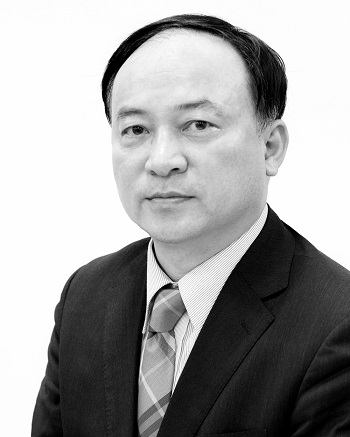
張 厚泉ZHANG Houquan
東華大学 / 教授
Donghua University / Professor
「近代化」にあたるModernizationという概念は、欧米の学者が欧米本位で後進国を考察するときに使う概念である。日本では「近代化」という言葉に対して、まったく違和感がなく使われていることに対し、中国では「近代化」という言葉にマイナスのイメージが強く、それを使うのに抵抗感があるため、「現代化」を使っている。すなわち、同じ漢字の「近代化」という言葉であっても、それに対する日中両国の研究者及び一般国民の歴史認識のズレが生じたことは、欧米本位の歴史観の限界を物語っている。そのため、突破口として、グローバルヒストリーの視点で日中「近代化」について比較し、研究している。
The concept of “modernization,” translated into Japanese as “kindaika,” is a concept being used by European and American scholars to assess the development, or underdevelopment, of a country. While in Japan, “kindaika” is a very commonly used word, in China, the word “jindaihua,” the Chinese kanji equivalent of “kindaika,” has a negative connotation. Rather, in the Chinese language, “modernization” is often being translated as “xiandaihua,” or “gendaika” in Japanese kanji and pronunciation. Although the Japanese and Chinese terms share the same Chinese characters, their concepts are different. A gap is produced between the researchers as well as the common people of the two countries in their understanding of the concept of "modernization," each being influenced by the translated terminology in their own language. This shows to a certain extent the limit of the Eurocentric and American-centric historical view of the world. Therefore this thesis is to compare and study the Japanese and Chinese "modernization" by the angle of the global history as a breakthrough.























